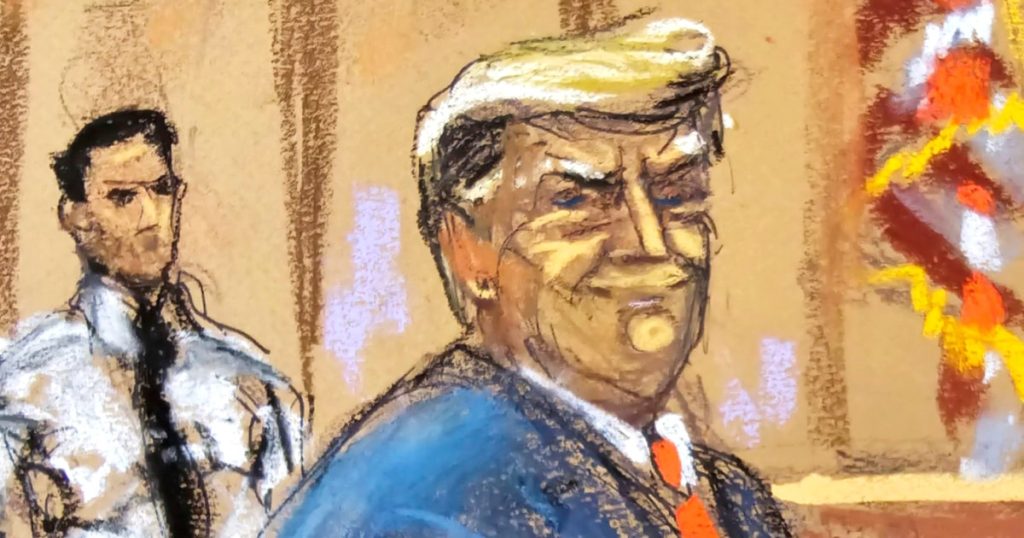The trial of the State of New York v. Donald Trump, the first criminal trial of a former president, began with the process of jury selection. More than half of the potential jurors summoned expressed bias towards Trump and claimed they couldn’t be fair and impartial. Trump himself criticized the judge overseeing the case, accusing him of being biased against him. The trial is expected to last six to eight weeks, with Trump facing 34 counts of falsifying business records related to a hush money payment to a porn star during the 2016 presidential election, which is punishable by up to four years in prison.
During the trial, Trump complained about not being able to attend his son’s high school graduation or a Supreme Court hearing on presidential immunity due to court obligations. His attorney attempted to argue for his absence, but the judge insisted Trump was required to be present. The jury selection process was delayed as lawyers for both sides raised various issues in court, with only nine potential jurors answering questions by the end of the day. Trump’s behavior during the proceedings, with his eyes closed at times, sparked speculation about whether he was asleep or in deep thought.
The jury selection process is set to continue, with the next pool of potential jurors scheduled to answer questions next. The judge has estimated that the process will take one to two weeks to complete. Trump’s presence in the courtroom is mandatory, as he faces serious charges that could result in a significant prison sentence if found guilty. As the trial progresses, both prosecutors and Trump’s attorneys will have the opportunity to ask follow-up questions to determine the final jury selection.
The trial has attracted significant attention due to its historic nature as the first criminal trial of a former president. Trump’s polarizing personality has influenced potential jurors’ ability to be impartial, posing a challenge for the selection process. Despite this, the legal proceedings are moving forward, with the judge overseeing the case ensuring that Trump is present for all court obligations. As the trial unfolds over the coming weeks, it will be closely watched by the public and the media, as the outcome could have far-reaching implications for Trump and his political future.
The charges against Trump related to falsifying business records to conceal hush money payments during the 2016 presidential election highlight the legal challenges he faces post-presidency. The trial is expected to delve into the details of these allegations and determine whether Trump is guilty of the crimes he is accused of committing. With the trial projected to last several weeks, it will likely be a high-profile and contentious legal battle that will test the judicial system’s ability to hold a former president accountable for his actions.


